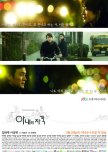If you ever wanted to try your hand at a Korean family drama but don’t have the patience for the 50+ episode format, A Wife’s Credentials is a good gateway drama. It mixes the slower pacing of a family drama’s plot with the intricacy of multiple storylines, layered and complex characters, and of course, Korean family dynamics.
There are essentially four Big Topics being put up for analysis in the drama: What it means to be a wife; what it means to be a mother/parent; the current state of education in primary/secondary schools in Korea; and the ramifications of both wanting a divorce and the consequences that come with having that wish granted. It’s difficult to hammer out each of these topics as a separate theme because they are all melded together through three interconnected families: The Hans, the Jos, and the Ohs. (It may be helpful to look up a family tree beforehand to get their relations straight).
The story as its most basic level centers around Yoon Seo Rae (Kim Hee Ae), a married woman with a son who is about to enter into secondary school. It is through Seo Rae that the drama questions what makes a person qualified to be a “Wife,” and to what extent that right extends to being a “Mother.” Does fitting all the qualifications of being a good wife automatically make Seo Rae a good mother, or does being a good mother to her son (adorably played by Im Je No) make her a good wife? In a society that stresses keeping up family appearances and keeping elders satisfied above all, can a “Wife” be more than a vehicle for her child’s success (and thus a mirror for her own parent’s efforts realized)? Can she still focus on herself occasionally and allow herself to feel like a woman - an individual - again? These are the questions the dramas asks through Yoon Seo Rae’s character; the questions with which she herself struggles time and time again as she is tested by her arrogant in-laws and as she grows through her interactions with Kim Tae Oh (Lee Sung Jae), who is the dentist from the description.
But that is only part of the equation that makes this drama wonderfully thought provoking. Through Kim Tae Oh’s wife, Hong Ji Sun (Lee Tae Ran), we see the privatized education craze from the eyes of someone profiting from it; profiting from housewives who will do anything to make sure their child comes out on top. On the other hand, we also see how a marriage crumbles in on itself through no fault of any particular party. Through the Han family, we see a product of the education craze all grown up - Grandparents who feel their society owes them the world for giving up everything to educate their children, and Grown Children who see themselves as the “Noblesse Oblige,” as Han Sang Jin (Jang Hyeon Seong) tells to his son, which is a result of his own perceived privilege. We also see what the idea of divorce does to a person’s mental state when it is out of their reach: Han Myung Jae (Choi Eun Kyung) is a character you’ll love to hate by the end of the drama, but some of her last scenes definitely make you sympathize what it is like to be stuck in a marriage because of filial obligations. While her situation may on a whole feel like Karma-induced retribution, it is also the drama giving us another portrayal of Wifehood in Korea.
There are so many more points I would like to give attention to in this drama. It is one of the best portrayals of character growth and subtle changes in characters I’ve ever seen depicted. Yoon Seo Rae and Kim Tae Oh’s journey throughout the drama is one of the sweetest, more realistic and mature illustrations of dealing with the prickly topic of adultery. Usually, we only get the perspective from the person who is cheated on, but this drama took care to give us both sides; not only that, but also reasons for the reactions of all the families involved, even when the viewer might not agree with those reactions.
I could go on and on, as you can probably tell, but I’ll also point out some things I felt the drama didn’t do enough with in order to make this review more balanced. It didn’t get a 10 from me for a couple of reasons. One, I felt that the topic of education and the impact it has on the kids involved could have been explored more. We get a child who does really well in school and a child who struggles, but we only know this through exposition, not with actually spending time with the child as a viewer. Two, there were some plotlines that were used solely as plot-drivers in the first half that were completely dropped and never mentioned again in the second (the situation with Yoon Seo Rae’s mother; Kim Tae Oh giving out free dental care, etc.) They’re little strings, but they still left some holes, at least in my mind.
I’ll stop here ’cause this review is getting monstrously long. If you couldn’t already tell, I enjoyed this drama immensely and would recommend it to anyone looking for a deeper, intriguing plot line in a drama. If you can stand slower paced stories (there are scenes where you spend a good 5 minutes just watching a person walking, or sitting, or lost in thought; I happen to really enjoy those types of scenes, especially with the wonderful camera work in this drama, but... I understand it’s not everyone’s cup of tea), and if you want to see how a typical family drama in Korea usually unfolds without having to devote yourself to the normal 50+ episodes, then give A Wife’s Credentials a try.
Vond je deze recentie nuttig?

























